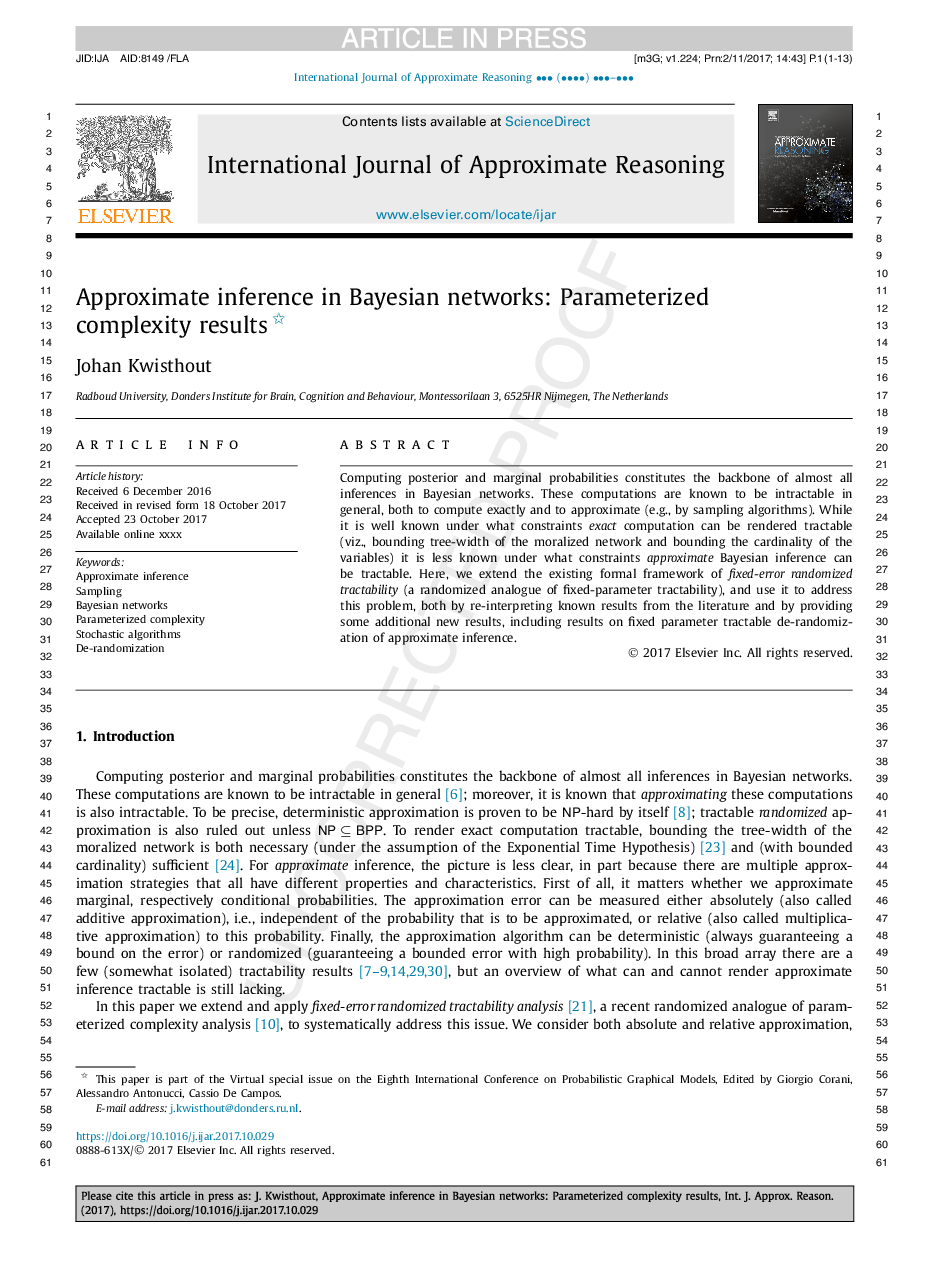| Article ID | Journal | Published Year | Pages | File Type |
|---|---|---|---|---|
| 6858831 | International Journal of Approximate Reasoning | 2018 | 13 Pages |
Abstract
Computing posterior and marginal probabilities constitutes the backbone of almost all inferences in Bayesian networks. These computations are known to be intractable in general, both to compute exactly and to approximate (e.g., by sampling algorithms). While it is well known under what constraints exact computation can be rendered tractable (viz., bounding tree-width of the moralized network and bounding the cardinality of the variables) it is less known under what constraints approximate Bayesian inference can be tractable. Here, we extend the existing formal framework of fixed-error randomized tractability (a randomized analogue of fixed-parameter tractability), and use it to address this problem, both by re-interpreting known results from the literature and by providing some additional new results, including results on fixed parameter tractable de-randomization of approximate inference.
Keywords
Related Topics
Physical Sciences and Engineering
Computer Science
Artificial Intelligence
Authors
Johan Kwisthout,
